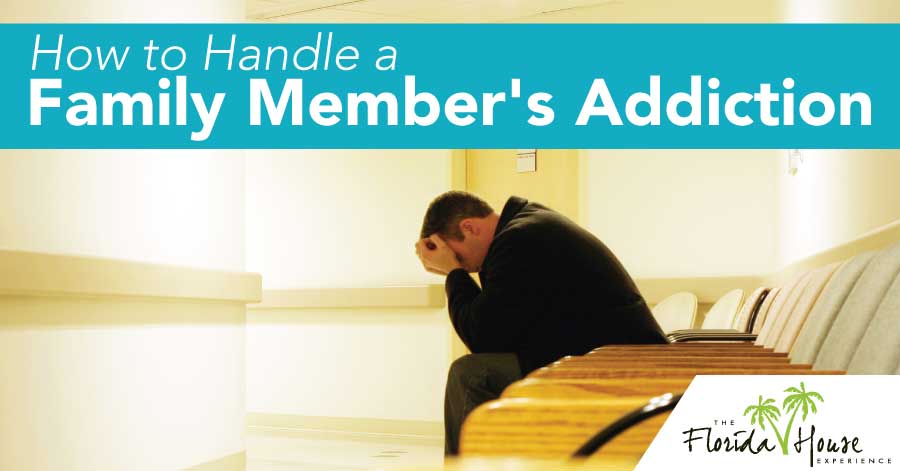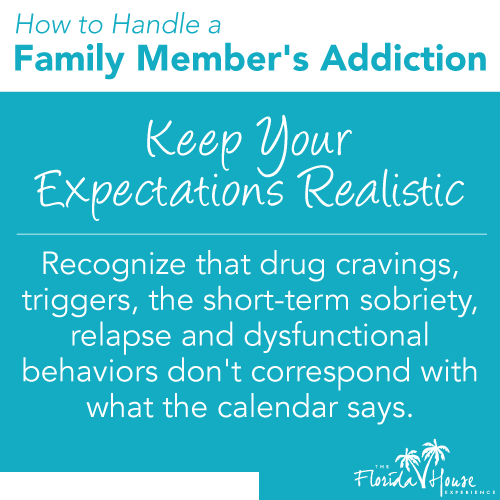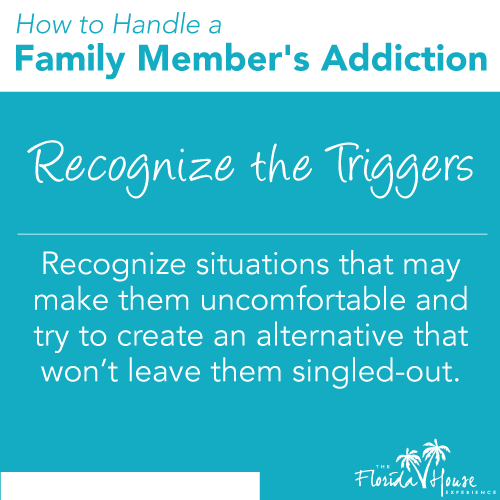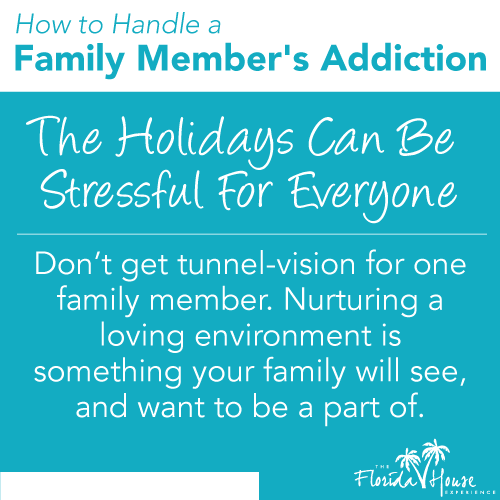
The holidays can be a stressful time for the healthiest of families, and the reality is that very few people actually make it through Christmas, New Year’s, Hanukkah, Kwanzaa, and the holiday season without some conflict, disappointment, and regrets.
For families dealing with substance abuse, the holiday season is often known as ‘the season of stress’ – it’s the time of year when all of the issues that come with living with an addicted parent, partner, child, or loved one are often magnified.
Here at FHE Health, we know that the holidays are often a tough time for everyone who is impacted by addiction, including people who are actively using, and those who have started on their recovery journey. While everyone’s situation is unique, there are some basic steps you can take when spending time with someone struggling with substance abuse this holiday season.
Keep Your Expectations Realistic
 Don’t expect a ‘Christmas Miracle’ to happen in your home. Keeping your expectations realistic is critical to everyone’s health and wellness, especially when it comes to dealing with an addicted family member.
Don’t expect a ‘Christmas Miracle’ to happen in your home. Keeping your expectations realistic is critical to everyone’s health and wellness, especially when it comes to dealing with an addicted family member.
Start by recognizing that drug cravings, triggers, the short-term sobriety, relapse and dysfunctional behaviors don’t correspond with what the calendar says. Just like with any other disease, substance abuse does not take a holiday; the addict deals with the same struggles and challenges 365 days of the year.
Plans to ambush your loved one with an intervention while the family is likely a bad idea. Interventions often require expert consulting and planning. Addressing the addiction in this way may be a recipe for disaster that will only fan the flames. That’s not to say that your family member can’t change their behavior, but substance abuse isn’t something that can be quickly addressed, like a outpatient surgery, and be back on your feet in a few hours. Understanding that will help everyone set realistic expectations regarding the holiday season.
Recognize The Triggers
 While addicts face the blatant triggers to use alcohol, drugs, or both, during the holiday season, addicts are often confronted with a more subtle onslaught of situations that can trigger them to seek out their drug of choice.
While addicts face the blatant triggers to use alcohol, drugs, or both, during the holiday season, addicts are often confronted with a more subtle onslaught of situations that can trigger them to seek out their drug of choice.
Office parties, family dinners, and other seasonal events all often include alcohol consumption, and that can be difficult for the addict to deal with. On one hand, they may want to participate so they don’t draw attention to themselves through their absence, but on the other hand, a person in recovery may opt out of certain events so they can steer clear of situations that may lead them to relapse.
As the family member of someone who struggles with substance abuse, you can show your support by planning alcohol-free holiday events, talking with your loved one about what might trigger them to use, and even toning down the holiday celebrations in your home.
Remember, if your holiday traditions usually involve drinking alcohol, it’s a good idea to either switch to alcohol-free wines and cocktails or eliminate alcohol from your holiday menu altogether.
You can also show your support by acknowledging the fact that for some addicts, the holiday season triggers past traumas. It can bring up painful feelings of loss and grief, especially for those who associate the holidays with conflict in the family or added stress.
Avoid the urge to get angry if the addict opts out of family dinners or special events. While they could be avoiding the family in order to use, they also may be trying to stay clear of situations that will bring up emotions that they have a hard time handling without the use of drugs or alcohol.

Create New Holiday Traditions
Another way you can handle a family member’s substance abuse over the holidays is to create new holiday traditions in your household. For example, if Christmas dinner has always been a source of conflict and drama, consider switching up your routine by ordering in take-out food instead of putting on a big home-cooked meal.
You could also plan holiday events that don’t involve getting together at home. Events like visiting a local holiday light display, going to a church service, or spending time at a local park, may be a good way to spend time together outside of your regular environment. This change could provide everyone in your family, including the addict, with the opportunity to reframe their holiday season experience and break away from past behaviors and roles.
Remember, The Holidays Can Be Stressful For Everyone
 Acknowledge the fact that the holidays can be stressful for everyone in your family; it’s not just about the addict. Putting too much focus on the person who is actively abusing drugs, or is in recovery, tends to create problems with everyone else, and that can start a vicious cycle of escalated tensions, triggers, and substance abuse. Furthermore, showing love to all of your family members creates a better environment for someone struggling with substances, an environment they will see and want to be a part of.
Acknowledge the fact that the holidays can be stressful for everyone in your family; it’s not just about the addict. Putting too much focus on the person who is actively abusing drugs, or is in recovery, tends to create problems with everyone else, and that can start a vicious cycle of escalated tensions, triggers, and substance abuse. Furthermore, showing love to all of your family members creates a better environment for someone struggling with substances, an environment they will see and want to be a part of.
Take some time to talk with everyone in your family about their hopes, expectations, and fears when it comes to the holidays this year. Be honest about concerns regarding overspending on gifts, worries about strained family relationships, and feelings of being overwhelmed.
Need Help Dealing With Your Family Member’s Substance Abuse Over The Holidays? Call Us
Here at FHE Health, we know that substance abuse impacts more than the addict; it affects the entire family. Our Family Program offers support and guidance for family members through workshops, family dynamics classes, and one-on-one sessions with our team of skilled, compassionate addiction counselors.
We’re available 24 hours a day, 7 days a week to take your call. Don’t spend another holiday season wondering how you’ll handle substance abuse in your family. We’ll help you learn how to be supportive, without enabling the addict in your life.






